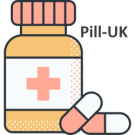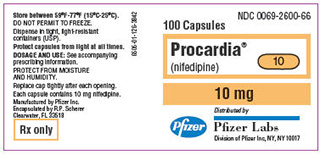Angina pectoris is one of the most common diseases, manifested by constrictive chest pain. It usually occurs during physical and emotional exertion.
What is the danger of angina pectoris? Angina pectoris carries a high risk of myocardial infarction. Procardia (the active ingredient of which is nifedipine) is a medicine used to treat angina pectoris. It is a calcium channel blocker whose action is aimed at narrowing the blood vessels and contracting the heart muscles.
We advise you to buy Procardia on our website at the best price. Just fill in a simple online order form and you will receive your medicines without prescription all over United Kingdom.
What is Procardia
Procardia is a calcium antagonist used to dilate the heart and other arteries (lowering blood pressure and reducing pain) and to stabilise the heart rhythm.
Indications
Diseases and symptoms for which Procardia is prescribed:
- chronic stable angina pectoris
- hypertension;
- severe hypertension during pregnancy;
- postpartum hypertension;
- primary and secondary Raynaud’s syndrome;
- altitude pulmonary oedema;
- pulmonary hypertension;
- stones in the distal ureter.
Procardia Dosage
Recommended dosage of the drug:
- chronic stable angina pectoris – 10 mg twice daily, maximum daily dose 180 mg;
- hypertension – 30 or 60 mg, maximum daily dose 120 mg;
- hypertension in pregnancy or postnatal period – 10 mg, if necessary, another 20 mg 20 minutes later.
Peculiarities of drug use
The tablet should be taken whole, without chewing and with water. It is not advisable to eat citrus fruits (including juices) during treatment. If you miss a dose, do not take two doses at the same time; skip the missed dose and return to the treatment schedule.
Contraindications
Procardia should not be used in patients with hypersensitivity to nifedipine, myocardial infarction, cardiogenic shock, cardiac and renal failure, severe aortic stenosis, hypertensive emergencies, ischaemia.
Side effects
The most common side effects are dizziness, headache, nausea, increased swelling, hot flushes and heartburn. Rarely, itching, urticaria and bronchospasm occur.


